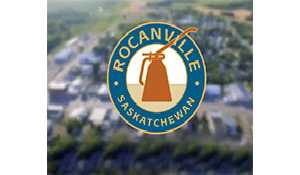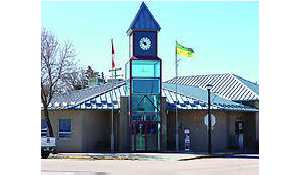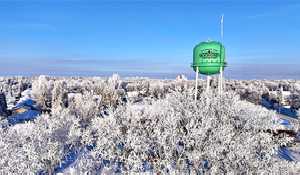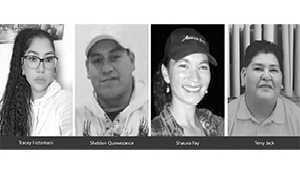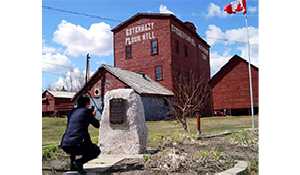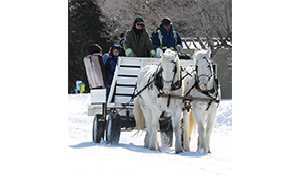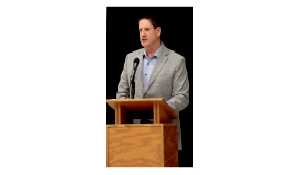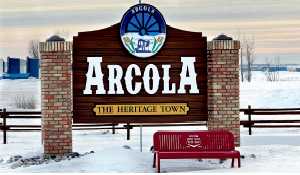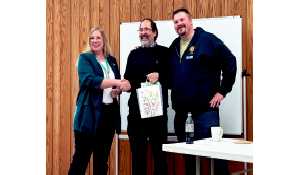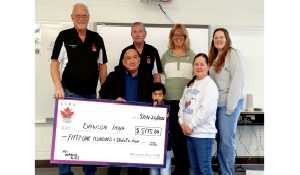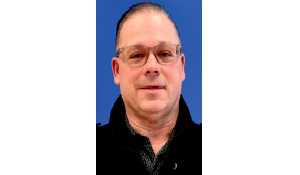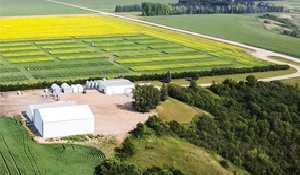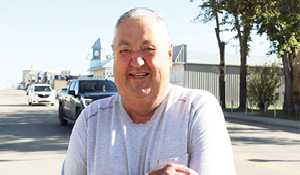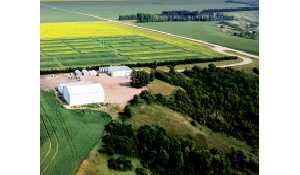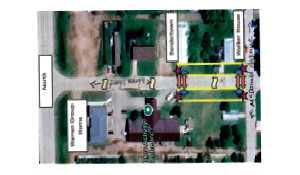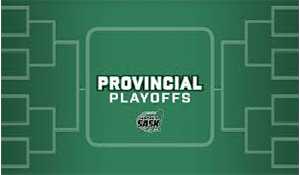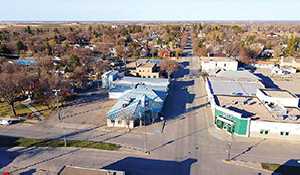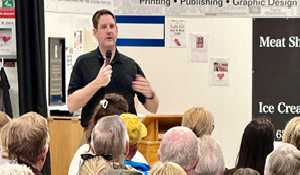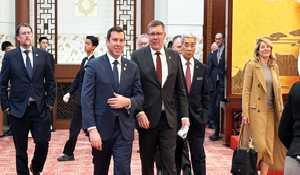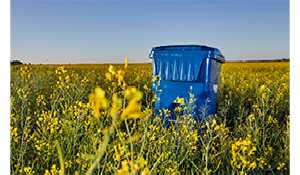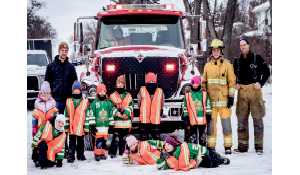Premier Scott Moe looks back on first term, ahead to election
World-Spectator interviews Saskatchewanís premier as election looms
September 15, 2020, 3:55 pm
Kevin Weedmark
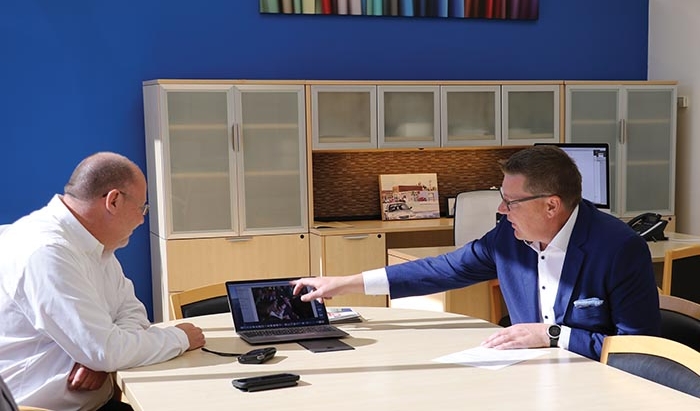

Saskatchewan Premier Scott Moe visited Moosomin last Wednesday and visited the World-Spectator for an interview. Moe became Saskatchewanís premier in February of 2018 and will be facing the voters in a provincial election on October 26. Following is the full interview with World-Spectator editor Kevin Weedmark:
We were at the Saskatchewan Party leadership convention back in 2018 when you won the leadership. I took a few photos as the results were announced. As the results of the final ballot were announced, people around you were on their feet, cheering and you were seated, with your eyes closed, looking like a monk in deep meditation. What were you thinking at that moment?
I was actually already thinking Ďboy we have a lot of work to do.í Because we did. We actually drove down and we started work the next morning at 10 oíclock, we were in the Legislature and starting on our transition.
So as those numbers were read off, there were a couple things going through my mind. One, just as we won, we have a lot of things to do and we need to do them in a hurry.
And two, just before that moment, I was still thinking about what I was going to say, win or lose, to ensure that the party would continue in a healthy fashion. When you enter a race you have to be prepared to not only win but also be prepared to lose, and I was prepared for either outcome that evening.
But I remember my familyís reaction. Both the kids were excited for different reasons. My son doesnít particularly like politics but he loves winning. My daughter loves politics and she understood what it all was about. My wife was thinking, Ďoh my goodness, what have we gotten into,í and I was already starting to contemplate the work ahead.
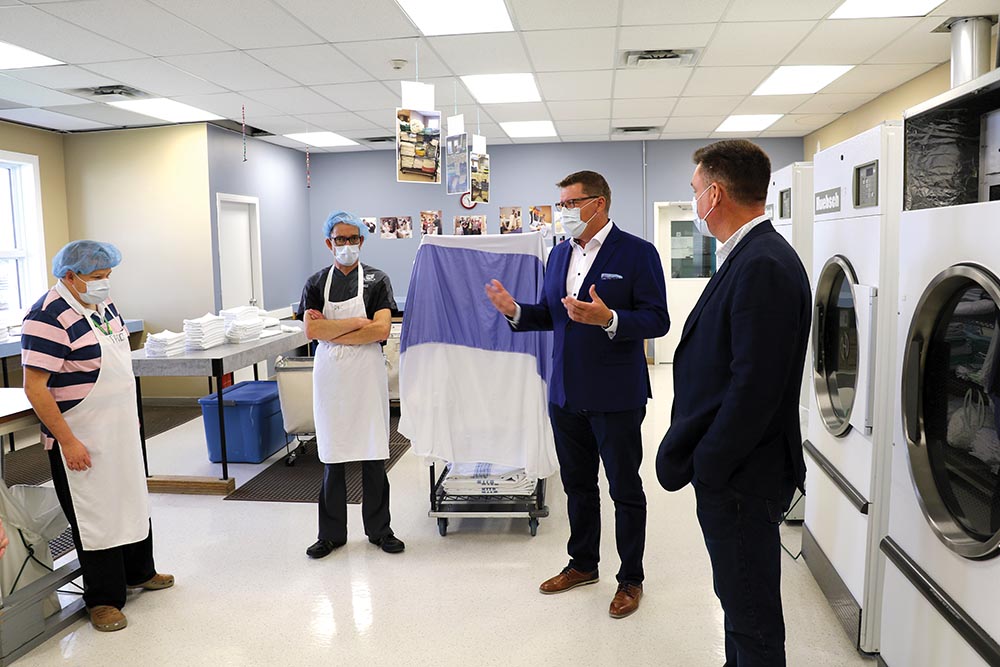

What was your main goal when you became Premier two and a half years ago? What did you want to accomplish before the 2020 election?
My immediate goals coming out of that evening were twofold. If you think back to that particular evening, the state of the provinceís finances, we were on a three-year path to balance the budget here in Saskatchewan, and so that was number one or that was most certainly a goal that I wanted to continue on the path that we had, and I wanted to accelerate it if we were able.
Goal number two was, any time there is a leadership race, you have a number of leadership candidatesówe have seen it at the federal level a few times in the last few yearsóthat are out and they are really pushing on the edges of the policy within the party and itís a healthy process.
So the other thing that was on my mind was, now how do we bring everybody back in?
We are all Sask Party supporters obviously, and I wanted to make sure we are all on the same team after we had been on a five month campaign when we were divided up into different leadership camps, and ensure that the party was healthy as we moved forward. So those two things were on my mind immediately following that evening.
Thankfully both have been successful.
Thankfully we were able to make some pretty challenging decisions in the budget, and we were able to make our way through and actually bring the provincial finances back to a solid state. That is extremely important given what we are dealing with today.
We have in Saskatchewan some of the most stable finances in the nation, and thatís starting to show as every province is running a deficit, a pandemic deficit at the very least. Some are larger than others. We are seeing, I believe, about a $4 billion dollar deficit in a province of similar size in Manitoba, about $24 billion in Alberta, which is about four-and-a-half times our size, so a little bit larger per capita deficit there.
In fact Saskatchewan has one of the smallest per capita deficits of any province in the nation. It is most certainly smaller than the per capita deficit that is being run federally, so thankfully we came into this pandemic situation in a very solid financial situation. We had righted some structural deficits that we had with the budget and we were very fortunate to be able to manage throughout this time as prudently as we could, and much of that credit goes to first Donna Harpauer, our Minister of Finance, but second our entire caucus, who we have worked with throughout this pandemic on some of the major steps that we have taken. We looked at what the ultimate costs would be, but also what the benefits would be to the constituents that we collectively represent. (Moosomin MLA) Steve (Bonk) has been part of those discussions all along.
For the first couple of terms of the Saskatchewan Party government, Brad Wall seemed to be the personification of the Saskatchewan Party. How have you tried to put your own stamp on the Sask Party government over the last two years?
Iíve said since the beginning, Iím not Brad. Brad was a great leader and I think he will go down in history as a great Premier, one of the greatest Premiers of the province. Most certainly in my mind that statement is true. Youíre rightóBrad was the persona and he was a great communicator and a great leaderóbut what I have tried to do is bring a little bit of a different flavor, if you will, where it isnít all about Scott Moe. The Saskatchewan Party isnít just about our elected members that are in caucus either, although that is who represents the Saskatchewan Party and represents the people collectively across the province as their government.
We hope to have the honour to continue to serve as this provinceís government if the people of this province are willing, for the next four years, because we are heading to an election on October the 26th, but the Saskatchewan Party is even much broader than our caucus members.
Itís all of the people that are a part of the party, that were at that evening of the leadership convention, but also all of the people that participated in that process, and also all of the people across this province that believe in the direction of, not just this party, but the direction of the province.
We have a real opportunity coming, post-Covid. When you look at the economic opportunity that this province actually hasówe traditionally produce food, fuel and fertilizer and we send that all around the world, but as we move forward and expand our horizons we are seeing a whole sector of our economy emerge based on innovation and technology that we have never had before.
Weíre seeing the manufacturing sector really start to increase, which 15, 25 years ago we didnít have here. And that industry isnít far from here as well with Vaderstad at Langbank as well as all of the manufacturing that is associated with the energy industry and the mining industry which is very front of mind here in Moosomin.
So that collaborative effort,n bringing those grassroots ideas up from, not only party members but community members, through our MLAs, into the caucus, into the cabinet and into the decision making process of the government of Saskatchewan, is paramount.
I would say that the focus on the grassroots ideas is more than itís ever been.
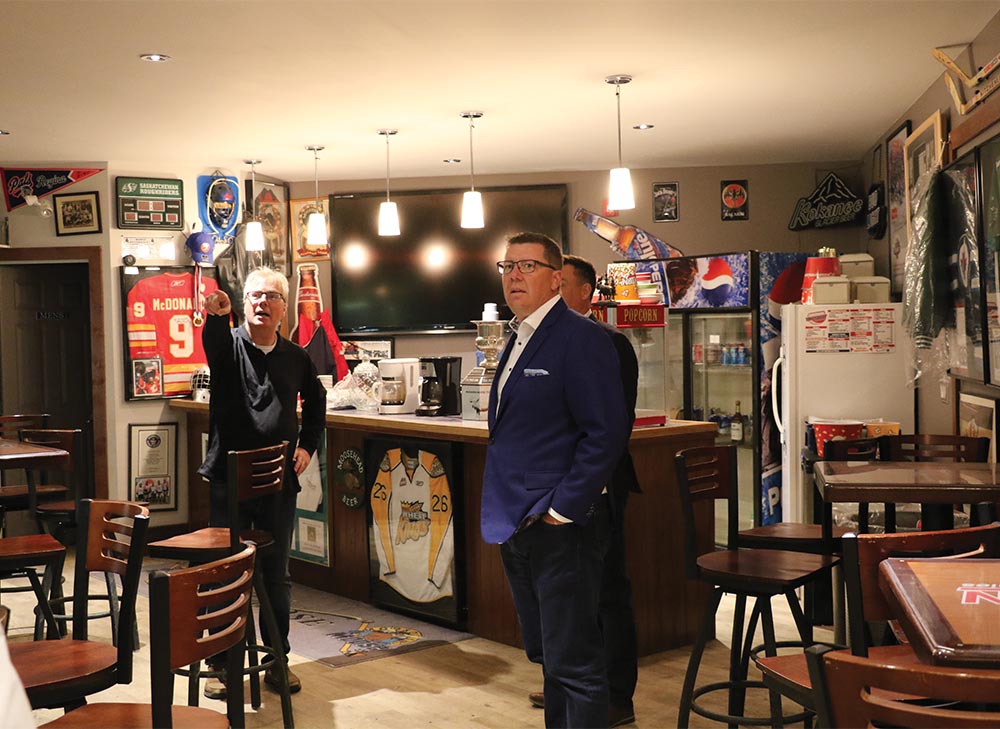

What are you most proud of in your time as premier, and what would you have done differently?
Well throughout this Covid pandemic there are a number of things that I would have probably done differently had I known what I know today.
But with respect to what we would be most proud of over the course of the last two-and-a-half years, it would be the release of the plan for growth, and the goal of growing the province to 1.4 million people and between now and 2030 to start checking off some of those boxes.
And thatís what Iíll be most proud of is that we are a province where now, for the second time, we have laid out and believe in the fact that we can grow our communities and we can grow our province.
We do that by growing our economic opportunities, and I always say the recipe for success in Saskatchewan is just not that complicated.
We produce things, we mine things and we make things, and we sell them to other areas of the world. Our export industries are a source of wealth in our communities and across Saskatchewan, whether itís uranium or potash mining, whether itís rare earth elements.
The energy we produce, the agricultural products, the food products that we produce, the manufacturing that we do that services each and every one of those industriesóthis is what we do and we do it very well in Saskatchewan, and it is our source of wealth. If we can increase that export value, not just the volume, but increase that export value, we create careers and we create the opportunity for people to move here. Of all of the targets in the plan for growth, first and foremost among them, is to increase our population to 1.4 million people.
Well that just doesnít happen by itself, people donít just move here because itís a sunny place, they move here because there is a career and an opportunity to better their life. They stay hereóour children, that next generation, will stay here if there is an opportunity for a career and a good life.
That hasnít always been here. The people that I graduated with donít all live in Saskatchewan, but I look at my sonís generation, in his mid 20ís, many of them do, many of them have chosen to stay here, so the recipe for success has been working for about the last decade or better now, and what Iím most proud of is the fact that we have a plan out to 2030 to continue and to build on that success and to grow our province even further.
Now the hard work comes, in particular, since weíve been thrown this economic curve ball if you will, health and economic curveball, of a global pandemic, but I still believe thereís tremendous opportunity on the back side of this virus.
What have been the biggest challenges for your government?
We have had significant challenges as a government.
In the very early days, I remember it quite vividly because I was out speaking at the Manning Centre in Ottawa and it was a Friday evening and we had our ruling come down in the Gerald Stanley case. I quickly flew back and met with all of the tribal chiefs and the family and the chief of the FSIN to work through some of what the next steps were in healing as communities across province.
I think of the Humboldt bus crash that we had not too long after that. And that was a tragedy of such a proportion and that I just canít imagine.
And more recently thereís the global pandemic. The challenges of the global pandemic are not immediate but they are severe and we often use the term that the response to this pandemic is a marathon, itís not a sprint, and thatís proving to be true. We are not through it yet by any stretch.
The challenges have been great, but I think what the challenge will be as we look ahead is we are going to continue with the health care challenges we have with the Covid-19 pandemic.
But we are starting to have very active conversations with those very industries that create wealth in our communities that I referenced earlier, on how do we best place our Saskatchewan industries so that we can recover as we work our way through what hopefully are the final months of this pandemic.
How do we ensure that Saskatchewan potash is being viewed by the world as not only an available, ethically sound product, a sustainably produced product, but the product that you should actually purchase because of its quality, its price and how itís produced.
The same with the agri-food products in Saskatchewan. Do we have an opportunity to climb the value-added chain when it comes to the agri-food products to create jobs and put people to work here, and looking very closely at capitalizing on any of those opportunities that may arise.
The same holds true with uranium mining, the same holds true with our energy industry, which has been particularly challenged throughout this pandemic due toóletís call it what it isófederal policies that have been put in place over the course of the last four or five years as well as a global price war that has been engineered by a couple of countries.
The energy industry is one that does require significant attention moving forward. I think there is opportunity here on September 23rd for the federal government to really address the difference between rebuilding an economyówhich would include rebuilding the energy industry economy here in Western Canada and Atlantic Canada, as it is one of the most sustainable energy sources in the worldóas opposed to the words that I hear from the federal government when they talk about their speech from the throneóbuilding a greener economy.
What we need to do here in Saskatchewan and in Canada is to rebuild and recover the existing economies that have created wealth traditionally in our communities across the province, and we need to recognize from an environmental perspective what they are already doing.
One of our main resource industries in this area is the potash industry and some in the industry are worried about the competitiveness of the industry here in Saskatchewan compared to other parts of the world in terms of regulations and the tax structure. Do you think it is time for a review of regulations and taxes for the potash industry?
The challenge with, letís use potash as an example, is the competitors in other areas of the world are in Russia, Byelorussia, places such as that, where they have nowhere close to the labour standards and nowhere close, even near, the environmental standards that we have here in Saskatchewan.
Yes that does add cost to the product that we are producing here but there is another side to this, as Saskatchewan has, and the potash industry will be quick to tell you this, the most sustainably produced potash in the world. Itís available right here from Saskatchewan.
But this is a time for usónot only at the provincial level, but also at the federal levelóto ensure that the regulations that we do have in place are not placing onerous costs on the industry and there are opportunities for us to work with, in this case, the potash industry.
We have done some work with the energy industry.
Is there an opportunity for us to really align regulations so that we get the same outcome, particularity if itís an environmental outcome that the regulations are trying to address or whatever the outcome is, but is there an opportunity for us to really align those regulations so that the cost to the industry isnít as great and the opportunity continues to be there for the industry to survive?
We have done some of that over the course of the last few months with the energy industry, and those are important discussions for us to have as we look to rebuild these industries.
And we not only want to rebuild back to pre-Covid levels in the potash industry, the energy industry, all of the industries in Saskatchewan, we actually want to start growing again to achieve some of the growth targets that we set out in our plan for growth.
We are almost back, we are not quite back, but we are getting there, back to the number of jobs we had pre-Covid.
We are leading the nation in our employment rate but there is more work to do. We want to, very quickly, get back to the pre-Covid employment levels so then we can start to focus in on the targets that we have and start growing the economy.
How do you frame the upcoming election? What is the choice voters will be making this fall?
The choice that voters will have this fall is who is best to recover the economy.
We have come through a health care pandemic that has had a tremendous impact on the economy far and wide, across this nation and around the world.
The world is starting to reopen.
Here in Saskatchewan we are fortunate we did not close down as much as other provinces and other areas in the world, in fact 87 per cent of people in this province continued to work throughout the pandemic.
We have recovered. For those that were unable to work during the pandemic, we have recovered at a faster rate than any other province and we have what the world needs to recover.
As far as the election and the question that people will be asking themselves as they go into the voters booth isóthere are two parties that have seats in the legislature today and the question will be who is best to recover the economy here in Saskatchewan, who is best to ensure that people can get back to work in their communities, and I would put forward that we have a growth plan out to the year 2030 and we have a track record with the previous growth plan.
So we have a growth plan for the province on how we are going to grow those very industries and expand and use those industries that have created wealth in this province for decades, half a century and a century in some cases, here in the province. We look forward to putting that into action, and I would put forward the other guys are just simply a risk that this province cannot afford.
What will be your priorities in the next term if you are re-elected?
Next term, top priorities are number oneórecovering the economy. We need to get everyone that was working pre-Covid back to work and then we need to focus in on exactly those industries that are creating jobs in our communities and those source wealth industries.
I call them our export based industries, thatís where we sell things to other places all around the world and we use those dollars to fuel the activity in our economies.
The chances are, in Saskatchewan, if the company you work with isnít directly exporting product to another area of the world, then your company is servicing someone that is. For example our auto dealers are selling to farmers, they are selling to energy workers, they are selling to people that work at the potash mines. They are servicing an export based industry.
Our rural newspapers for exampleómuch of the work that you do is focused on agriculture. Here in Moosomin you would also be focused on mining and would also be focused on the energy industry. You in an indirect way are servicing those export based industries.
MNP, the accounting firm across the street, would service all of the industries in the area, and they would be quick to tell you, being an accounting firm, how important those export based industries are.
Thatís where the source of our wealth comes from in this province.
If we focus on increasing the value of our exports, the industries that service those export related industries, those export based industries will do well.
The polls show the Saskatchewan Party leading in every region of the province right now and that it has added a bit to its lead over the summer. How does that impact how you run your campaign?
We run our campaign like we are 10 points behind.
We have been out in essentially what is full campaign mode now for months and we will continue right up to and including Election Day on October the 26th.
You donít get the opportunity to serve the people of this province as their government by any poll.
You receive that opportunity on Election Day, and so the polls are out there to discuss trends and to inform the public on where those particular polls think the general trend is.
The fact of the matter is elections arenít about polls. Elections are about interactions between MLAs, like Steven Bonk, and his constituents, the people that he serves.
We run every election like we are coming from behind. This one is absolutely no different. We have been working at essentially 100% capacity for the last couple of months.
Even before that we were up to a level of election readiness and we will continue knocking on every door, talking to every constituent across this province, including in the constituency of Moosomin, and asking for their support on October 26th so we can put into action our plan which we feel is the best plan on how we are going to recover and grow the economy here in the province.
What is your vision of this province? What do you want Saskatchewan to be?
A bigger, better, more wealthy and a more caring place.
The driving force behind the Saskatchewan Party hasnít changed.
Itís about growth. Growing the economy, growing the opportunity so that people can move here, and they have, but so also our children and that next generation can stay here.
That grows the population.
With that growing population you can take the proceeds of that and reinvest them back into your communities, and thatís why we are in Moosomin here today, to announce and confirm some of the investment through the Municipal Economic Enhancement Program, or the MEEP program, which never occurred 10 years ago.
That is a program that we had brought in to ensure that our municipalities can continue with their infrastructure plans throughout this Covid pandemic.
We will use Moosomin as the example, there is $600,000 that was provided to Moosomin up front this year in revenue sharing and almost $400,000 supplied through the Municipal Economic Enhancement Program.
Thatís a million dollars in the community of Moosomin that was not available in 2007. Itís through the government that the people in Moosomin and across the province have chosen that those dollars have been made available, not only to Moosomin, but every municipality, rural and urban, across the province.
Thatís a true partnership and thatís true respect of the different levels of government and how they serve the very same constituents that we all represent collectively. And so I think of the commitment that this government has had not only to its municipalities but to the education sector, to the advanced education sector, to our highways and infrastructure, is indicative of a government that is going to ask for the peopleís support so that we can continue on our growth agenda so that we can continue ultimately to reinvest into our province.
So grow our economy, grow our population and take the proceeds and reinvest it back into health care, highways, municipalities and education. Tweet

